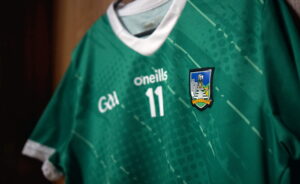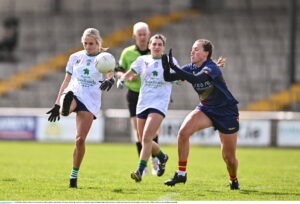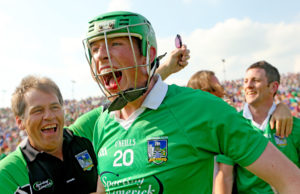GAA
Its time we talk about the black card.
When Sean Cavanagh pulled down Conor McManus in the 2013 All-Ireland Quarter Final, little did he know that he would change the landscape of the game. Cavanagh was lambasted for his cynicism by all from the media, with RTE pundit Joe Brolly taking particular offence from the action.
But the Tyrone star was not the sole perpetrator of cynical play in the GAA and we would also be a bit naive to think that deliberate pull downs and trips didn’t exist in the era of the great teams of the past.
GAA congress knew it would have to act so it set about putting structure together that would punish cynical play and give the advantage to teams trying to play football. The black card was born with great intentions but has let the GAA public wholly dissatisfied with it’s varied interpretation and implementation.
There were 5 clear fouls listed that would result in a black card, they were as follows:
1: A deliberate pull down
2: A deliberate trip
3: A deliberate body collide off the ball.
4: Verbal abuse to a teammate or to an opponent.
5: Remonstrating with a match official.
On receiving a black card for one of the listed offences, a player would be forced to leave the pitch and be replaced by a substitution. If that player had received a yellow already in the game, then that player would be forced to leave the pitch with no replacement.
Whilst on the surface the rule seems to be straight forward, the implementation of the black card has been anything but. One only has to look at the demonstration videos for the various offences to see the subtle differences between a black and non-black card offence.
Now take on board factors and variables like conditions under foot, players trying to con referees, feigning injury and diving and it’s clear to see what an unenviable job referees have.
The fact that the rule is so subjective leaves it open to different interpretations from different referees. It is also worth nothing that we have the luxury of analysing the referees decisions in slow motion, over and over again while the man in the middle has a split decision to make real time.
Many club games in Limerick have seen star players sent to the stands for black card offences, yet many more offences have gone unnoticed. It is something that frustrates coaches and fans alike.
On the All-Ireland stage the rule is even more scrutinised. In the 2016 All-Ireland final, spectators were denied the chance to see Footballer of the Year, Lee Keegan play for majority of the game as he was black carded for a pull down on Diarmaid Connolly.
Last Sunday’s League Final, brought the rule into question yet again as Jonathan Lyne, the aforementioned Connolly and Anthony Maher were all issued black cards. Maher’s was as cynical as they come.
With time elapsing, Dublin sought an equaliser as the Kerry defence began to tire. With Mick Fitzsimons running straight through the Kerry defence, Maher blatantly pulled down the Dubliner outside the 45′ metre line and subsequently outside Dean Rock’s distance.
Kerry were rewarded for this cynical act and when Rock narrowly missed the kick, Kerry were declared winners. Another incident of the black card not working.
So what alternatives would work?
If the black card is just dismissed, then teams will revert back to the underhand tactics that were prominent prior to its inception. The idea of the black card is the right one, it’s just the implementation that is wrong.
7 minute sin bin:
The sin bin is efficiently enforced in Rugby from every age grade with minimal fuss. Whilst the black card might mean the dismissal of one of your best players, county panels are so strong nowadays that the replacement shouldn’t cause much disruption to his team. Seeing as Gaelic games are shorter than rugby, a 7 minute stretch in the bin would be more proportional.
However, if you were to enforce the sin bin, you would need to clarify the rules that would warrant such punishment. Each referee differs in their interpretation of the offences that lead to a black card, some choose to ignore the card altogether. If you simplify the offences and lay them out clearly, players and officials will all be aware of the consequence.
A couple of months ago, the President of the GAA Aongán O’Fearghail spoke about his issues with the potential introduction of a sin bin. He said,
“It (the sin bin) has definite advantages and could work here on a pitch like Croke Park and Thurles. It was found the last time in the research that it was almost impractical to operate at club level around the country.”
However, the sin bin is used at all levels in Ladies Football and has caused no such issues like the one the President has outlined.
A free inside the D:
While losses in personnel or changes to the line up can disrupt a team, where teams are hurt the most is on the score board. If any black card offence resulted in a sin binning with the additional punishment of a free for the opposing team anywhere inside the D, then that would also punish cynicism on the score line.
This would work particularly well in tight games, take the league final last week for example. The black card for Anthony Maher’s pulldown ultimately had no impact on Kerry. He was rewarded for his cynical play as Rock missed his chance to equalise.
Had the free been moved directly in front of goals, it might have been a different story. Either way, it counts for little now.
The black card that was born out of great intentions has become a problem child that the GAA can no longer ignore.










